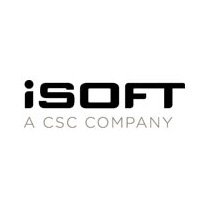ISoft has seen its payments under the National Programme for IT in the NHS drop more than 50% in a year.
The company is contracted by local service provider CSC to provide its electronic patient record, Lorenzo, to the North, Midlands and East of England.
In the first half of its financial year 2011, it received revenues from the programme of £13.2m (AUS $21m) in constant currency, in comparison to £27m (AUS $43m) in the same period of its financial year 2010; a drop of 52%.
The company today posted a net loss of £52.9m (AUS $84m) for the six months ending 31 December 2010. In the same period in 2010, it made a small profit of £3m (AUS $4.8m).
It also recorded a decline in overall revenues of 17% from £124.1m (AUS $197m) to £102.7 (AUS $163m), and said that the decline was mainly driven by NPfIT.
ISoft added that this was “largely expected”. However, it said that replacing the declining revenues from NPfIT remains a “key priority” for management.
The company has recently made several big wins that will show in its Q2 results. These include signing a big deal with seven trusts in the London and the South of England known collectively as the iSoft7 to continue supplying its iPM and iCM systems.
However, the results show the reliance of the company on what it calls its “largest customer”, CSC.
In its announcement to the Australian Stock Exchange, iSoft said that the CSC contract contributed around 14.7% to the company’s total revenue in the six months to 31 December.
Two weeks ago, EHI reported that the Department of Health was considering terminating CSC’s local service provider contract after it failed to deliver the latest version of iSoft’s new electronic patient record system, Lorenzo, to a fourth and final key early adopter site in the NME.
The company says it is not part of the ongoing negotiations between the DH and CSC and it is not involved in decisions on timing of the implementation of Lorenzo.
It does say: “If CSC were to terminate the CSC contract for failure of the consolidated entity [iSoft] to meet material obligations under the CSC contract or if there were material disputes regarding obligations, including scope of delivery or payments, these could have an adverse effect on the consolidated entity’s operating and financial performance.”
It adds: “Apart from CSC, the largest customer of the consolidated entity, the consolidated entity does not have significant credit risk exposure to any single counterparty.”
Chief executive of iSoft Andrea Fiumicelli said: “We continue to face a difficult operating environment although we have been able to grow market share by winning new business, including the important iSoft7 contract, and our revenue backlog is continuing to increase.
“In part this reflects a trend where the period between when a customer places an order and the time at which they approve the commencement of projects has lengthened, which delays our ability to begin recognising revenue.”
Aside from NPfIT, the company announced that it has cut operating expenses by almost £12.6m (AUS $20m), predominantly by reducing its full-time employee headcount by 28% and cutting discretionary spending.
It expects to be able to achieve its planned £18.9 (AUS $30m) cost reduction for FY2011.
In addition, the company is keen to focus attention on its earnings before interest, taxes, depreciation and amortisation (EBITA), which is sometimes used by analysts to strip out variables that can obscure how a company is performing, but which critics dislike for potentially overstating cash flow.
ISoft’s EBITA was £6.1m (AUS $9.8m) in the six months to 31 December 2010, compared with -£5.2m (-AUS $8.4m) the previous year before restructuring costs and exceptional items.
However, the company now expects to earn slightly less than its previous targets of £233.1m (AUS $370m) for FY201, due to “weaker than expected trading conditions.”
Robert Moran, the company’s chairman and major investor, will step down next week but will remain on the board. Bob Ellis will be appointed to the board as a non-executive chairman.

